Is a pre-built PC or a custom PC better for gaming?
Should you buy a pre-built gaming PC or build a custom gaming PC? The debate has become intense over the past few years. This article will help you decide whether a pre-built PC or a custom PC for gaming is the better choice for you.
1. Convenience
Let's start with the most prominent differences between prebuilt and custom builds. When deciding to build a custom gaming PC, you need to meet the following conditions before you start thinking about price:
- Considerable knowledge of the latest platforms and storage and memory speeds
- Information on where and how to purchase individual components to maximize value
- Technical know-how for PC assembly
- Know how to optimize every component, settings, and operating system to maximize gaming performance
If you haven't been following industry developments for a while or don't care to do so, venturing into haphazardly buying parts will certainly not yield the expected results. Without knowing the right motherboard platform, how the competition between Intel and AMD is evolving, or which storage and memory standards to choose, you won't be able to build the best PC within your budget. your book.
And on top of that, you also need to be confident that you can put everything together and do a good job like cable management.
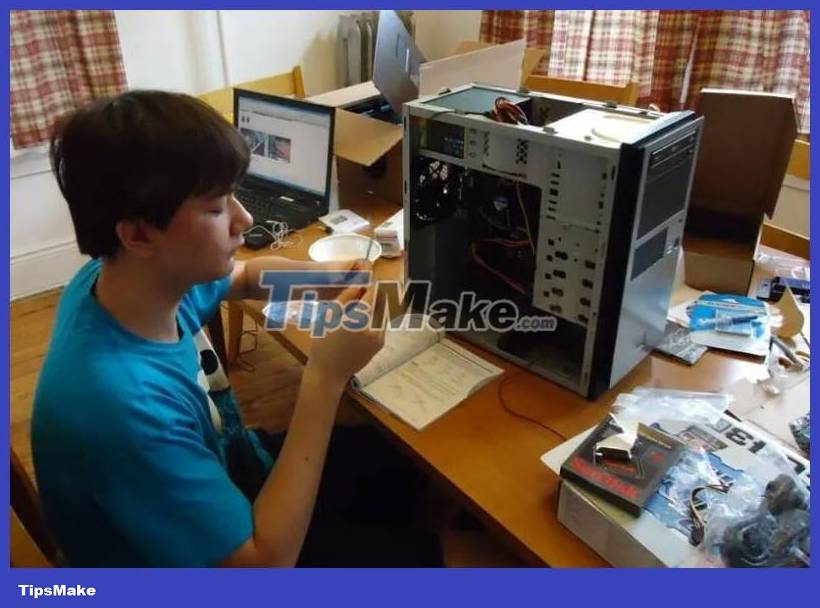
Conversely, if you buy a pre-built gaming PC from any of the major retailers on the market, you can eliminate all of these limitations and focus on enjoying your new console. Today, major retailers offer powerful pre-built gaming PCs at a variety of price points to help customers choose one that suits their needs.
Note that you still need to have some basic knowledge about which CPU and GPU are best to buy to support the gaming performance you're looking for.
Overall, the gap in technology required to build a custom PC is still large enough that choosing a pre-built machine is the most convenient option for most gamers.
2. Pricing
You can build or buy the most powerful gaming computer if price is not a consideration. But sadly, for most of us, this is often a deciding factor. However, price is not as obvious as convenience.
Obviously custom is the best option if you want to get the most value for your money, as pre-built system retailers often include significant markups for the same configuration of PC custom built.
Additionally, many of the components these retailers select are often low quality, off-brand, and do not guarantee performance under sustained load or maximize value.
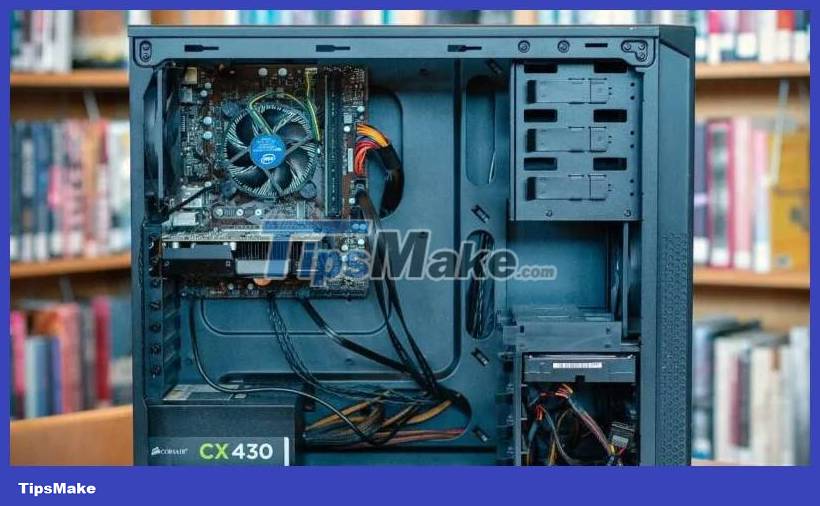
This trend has changed over the years, with pre-built gaming PCs now featuring good quality components. More importantly, with the price of core components like graphics cards fluctuating widely during the cryptocurrency mining boom, building a custom PC is not guaranteed to be cheaper than buying a pre-built PC. have similar configuration.
However, pre-built gaming PCs have not yet completely bridged the price and performance gap compared to custom gaming PCs.
If you're willing to put in the time, learn the latest PC hardware, and gain PC building know-how, you can build a PC that beats a pre-built gaming PC for the same price (in stable market conditions). ).
3. Flexibility
Flexibility in choosing the components that make up a PC is also an important factor in the debate between building your own and buying off-the-shelf. After all, components like the CPU, GPU, memory, storage, and even cooling hardware can greatly impact your gaming performance.
Buying a pre-built gaming PC from a store can be convenient and let you have it ready to play in a few days, but you don't have a lot of choice when it comes to the components inside your PC.
Sure, you can try browsing through the prebuilds and find a configuration that's close to the one you're targeting, but even so, you still probably won't be able to choose a motherboard, RAM, or SSD that I want. Pre-built PC companies often source components from OEMs in bulk and don't focus on flexibility or scale. This means you'll likely end up with a subpar power supply, slower and less memory and storage, as well as any CPU coolers and cooling fans that the rebuild takes away. included.
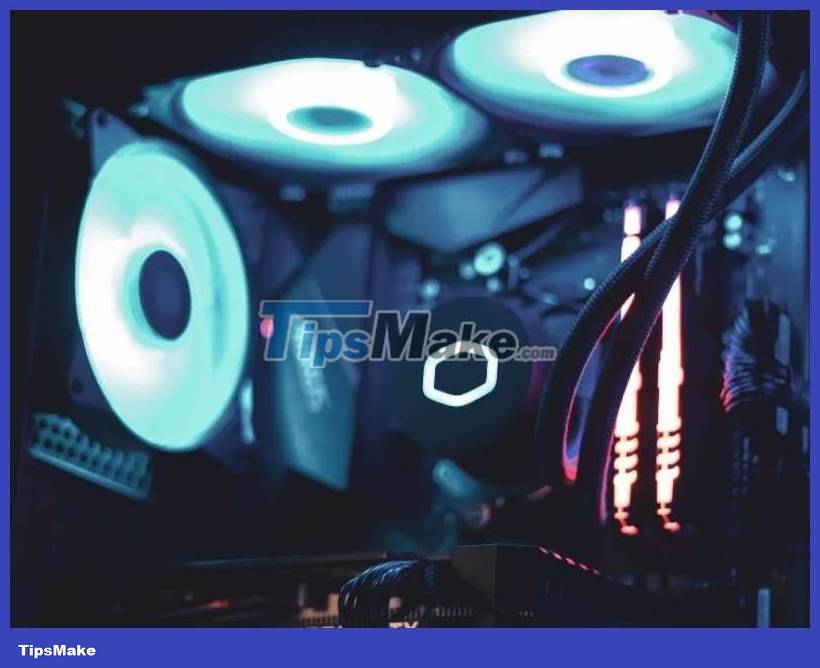
Another drawback that makes pre-built PCs difficult is the choice of core components such as CPU and GPU combination. For example, you can easily find systems with an Intel i5 12600KF paired with an RTX 3060. While the i5 is a capable gaming chip, an RTX 3060 Ti or RTX 3070 would be better for gaming.
When building a custom gaming PC, you can choose the components you want. Custom builds give you ultimate flexibility.
4. Aesthetics
The components powering your new gaming PC are important, but the overall aesthetics can't be overlooked either. Gaming computers are typically placed on or under a desk and are something you'll look at almost every day. This makes aesthetics an important factor in the entire machine buying or building experience.
The aesthetics of a gaming PC include the following:
- Select computer case
- Quality of ingredients
- RGB or ARGB components
- Number of case fans
- Motherboard design
- GPU design
- Custom cables and extensions
- Heatsink for memory
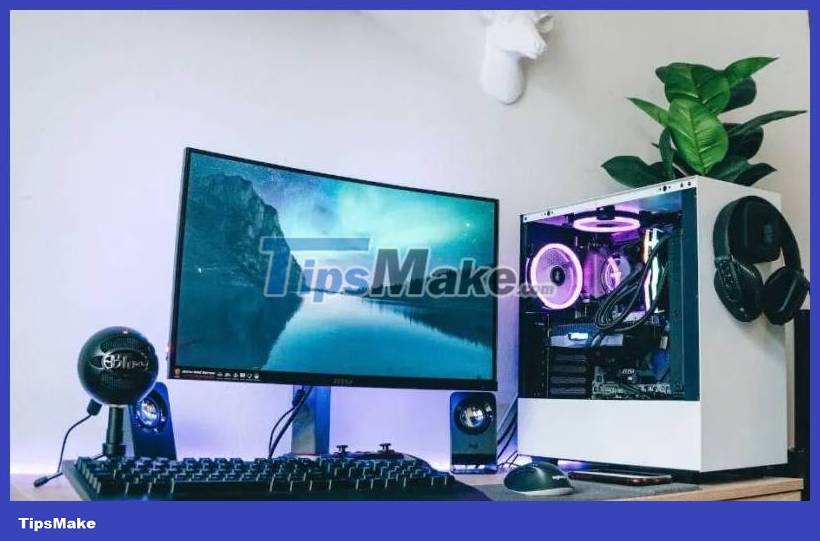
When you buy an off-the-shelf pre-built gaming PC or even buy one of the custom options from a company that specializes in PC building, you won't be able to prioritize the aesthetics of your PC as much. The majority of pre-built systems will have a limited number of cases between them, and likely won't have things like RGB components, multiple case fans, and custom cables. Even custom PCs purchased from reputable retailers will offer limited aesthetic options.
When building a gaming PC from scratch, you have complete control over the amount of RGB you want (and the freedom to sync RGB components), your choice of case and case fans, and whether you want air-cooled devices. custom fluid, GPU holder or all-white components or not. Therefore, a custom PC is the best choice if you value the aesthetics of your build.
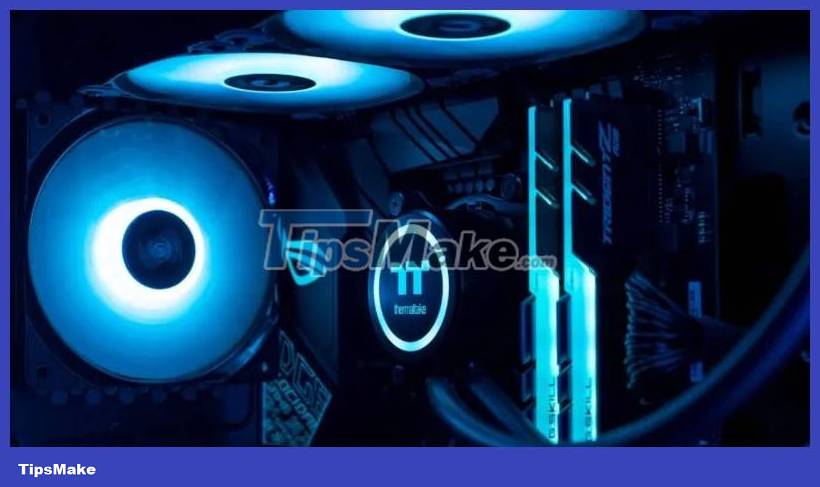
Note : One thing to remember here is that it's easy to overspend and blow up your budget when building your own PC, especially if you want the most premium and beautiful components for your build. So, be cautious, avoid abuse, and consider all these things when you build a custom PC.
5. Warranty and technical support
Even after you have purchased or assembled your gaming PC, you may still encounter problems during use. Maybe your operating system stops booting or your graphics card starts experiencing errors. This is where warranty and technical support come into play.
Not everyone has the knowledge or time to diagnose the cause behind an annoying problem. For this reason, pre-built gaming PCs have an advantage over custom PCs. You have one place to voice any concerns with your PC. Just contact technical support and they will solve your problem over the phone or help you send your PC in for repair. You don't have to figure out which component is failing or which program is causing the conflict.

A custom built PC does not have dedicated technical support options. It is your responsibility to diagnose the problem and submit the defective component, if any, according to the RMA process to the specific manufacturer. Conversely, you get a more extended warranty on individual components when customized, whereas a pre-built unit only has a standard one or two year warranty on the entire system.
If you are happy with a shorter warranty period but a more convenient process, then a pre-built system is better in terms of technical support and warranty.
6. Software
This is quite important for some users. If you're not willing to install your operating system (Windows in most cases), configure BIOS options, and adjust settings yourself, you're probably better off with a pre-built gaming PC. Pre-built systems come with an operating system and even some useful programs, like Microsoft Office, pre-installed. Some pre-built PCs even have the correct XMP/EXPO memory configuration pre-configured in the BIOS (however, this is still rare).
On the contrary, if you build a custom PC yourself, you will have to set it up from scratch. This may involve the following:
- Convert BIOS version
- Install the operating system
- Configure BIOS options (memory configuration, cooling fan operating time, boot device)
- Optimize Windows settings to maximize FPS when gaming
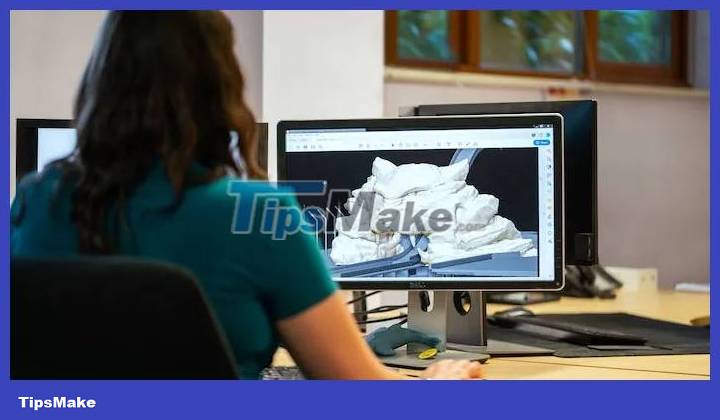
Pre-built gaming PCs may not come with overclocked GPUs or optimized Windows settings, but this is a relatively easy customization for many gamers.
For such people, building a custom gaming PC is a better choice, as it allows you to set up and configure your PC the way you want. You can set custom fan settings for quiet yet powerful operation, upgrade the BIOS to get the latest features, and optimize Windows for maximum performance.
If you're a tech-savvy user, build a custom gaming PC so you can control the software.
Conclude
In short, the decision depends on your technical level and the level of control you desire on your console. For those who are already versed in all things tech – or at least willing to learn, building a PC can be a more rewarding and affordable option. But if you want the convenience of an off-the-shelf machine and are willing to spend more money, a pre-built system may serve you better.